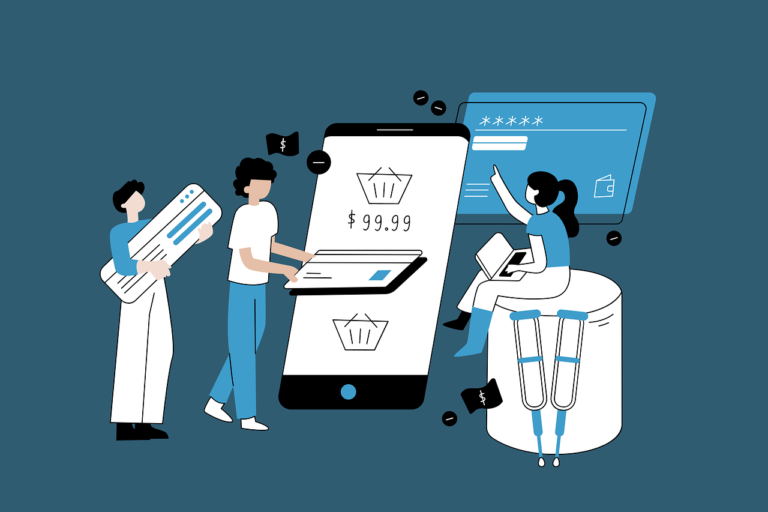Table of Contents
Let’s discuss virtual private networks. It’s likely that you’ve heard the phrase used in discussions, tech blogs, or by that overly dramatic YouTuber who claims that a VPN saved their life—or at least their Netflix subscription. However, what exactly is a VPN? And why is it being portrayed as the digital equivalent of donning armor in combat zones?
Let’s dissect it, then. No robotic-sounding explanations or complex technical jargon—just a guide that sounds like real conversation.

What exactly is a VPN, then?
Virtual Private Network is what VPN stands for. Despite having some amazing abilities, it isn’t a brand-new Marvel superhero. A VPN essentially functions as a covert tunnel connecting your device to the internet. Your IP address—basically, your online home address—is concealed when you use it, and your data is encrypted, or jumbled into unintelligible gibberish.
Simply put, it shields your information from prying eyes and renders you virtually invisible online.
Why should you give a damn?
Because it’s not all sunshine and cat videos on the internet. Hackers, snoopy governments, dubious coffee shop Wi-Fi, and spooky advertising agencies are all attempting to determine whether you enjoy pineapple on pizza. It’s acceptable, by the way, if you do. Here, we’re all friends.)
Your privacy is protected when you use a VPN. This implies that your search history remains private and unresolved. Nobody should be aware that you searched for “how to fold a fitted sheet” on Google at two in the morning. You are in charge of that.
This is an actual situation.
Consider yourself using free Wi-Fi at a coffee shop. You’re sending work emails, checking your bank account, or enjoying your pricey oat milk latte. You have no idea that a cunning hacker with a laptop and far too much time is two tables away. Your data is just floating around like a message in a bottle without a VPN, making it simple to read and intercept.
Imagine the same scenario, but with a VPN installed. All of a sudden, your data is more secure than your grandmother’s trade secret cookie recipe. Even if someone tried to grab it, it would only show digital gibberish. Good luck, cybervillain.
Hold on, it can aid in streaming as well?
Yes, of course. VPNs are more than just security; they’re your golden ticket to the world’s entertainment buffet.
You are aware that the content that Netflix displays varies based on your country? Yes, geo-blocking is as annoying as it sounds.
You can unlock shows that aren’t available in your area by using a VPN to make it look like you’re in a different nation. Would you rather watch that British detective series or the anime that is only available in Japan? VPN says, “Say no more, I got you.” It’s like having a passport for the internet, except without the embarrassing passport photo.
What more is a VPN capable of doing?
- Keep your location hidden (no more eerie advertisements that read, “single people in your area!”).
- Assist in getting around government censorship in certain nations (yes, even Big Brother has blind spots).
- Avoid having your connection slowed down and your internet provider spying on you (because yes, that is a thing).
- Allow you to work securely from a distance without disclosing private information (no one wants accounting’s Steve to read private information).
It sounds fantastic, but is it lawful?
Indeed! In the majority of countries, using a VPN is completely legal. You have the right to safeguard your privacy online. But if you’re using it to commit a crime, then—well, that’s still against the law. The VPN is more like a great trench coat with sunglasses than a magical mask of lawlessness. Protective and fashionable, but not above the law.
All right, but how user-friendly are VPNs?
You can use a VPN if you can use a microwave. Actually. Most VPNs are click-and-go. Install the app, pick a spot, turn it on, and voilà! You are now acting like a secret agent when you use the internet. Aside from the explosions and vehicle chases
Are there any drawbacks?
Indeed, no tool is flawless. Certain VPNs have the potential to slightly slow down your connection, particularly when you’re connecting to a distant server. Furthermore, not every VPN is made equal. Free ones may not function very well or even sell your data (oh, the irony). Usually, it makes sense to spend money on a reliable, premium VPN. Consider it like purchasing a good lock for your front door rather than relying on good vibes and a shoelace.
In conclusion
The internet is insane. Using a VPN is one of the smartest and easiest ways to stay safe, private, and maybe sneak in an extra season of your favorite show. Whether you’re a remote worker, traveler, or just an introvert who dislikes being watched, a VPN can greatly improve your online experience.
To avoid targeted ads for products you’ve only considered buying, turn on your VPN the next time you’re at home or using public Wi-Fi. Protect your data. Be mysterious. As if you were everywhere, watch shows.




